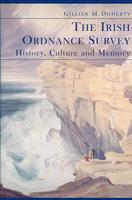Survey of Irish-born immigrants in Washington and British Columbia

In last week’s newsletter from the Irish Heritage Club, I read about a survey of Irish-born residents of Washington state.
SEATTLE-NEWS@IRISHCLUB.ORG, FRIDAY, JANUARY 26, 2007, PART-1
IRISH SURVEY - Irish-born residents of Washington State are being asked to complete a 32-question survey in connection with a PhD. research project sponsored by Seattle’s Irish Immigration Support Group. The goal is to take a snapshot of Irish-born people living in the Seattle area who left Ireland in the 1900s, mostly those who left Ireland after WW-II. If you or someone you know is willing to participate, please contact Melissa at 206-229-8512 or melissae@irishclub.org.
I filled it out and emailed it back to her; it was fairly painless. I just spent some time with Melissa in an (optional) follow-on interview.
As she says in the survey:
If you look at the history, traditions and stories about the Irish in America, much of it comes from the east coast and the post-Famine era. The condensed version is that people left Ireland to get away from the oppression of the British, the lack of economic opportunities, and to work to send money to their families in Ireland. Once in the US, Irish immigrants faced discrimination based on their religion, their birth place, and a rash of stereotypes about the Irish as lazy, drunkards and brawlers. They worked hard, earned success and managed to make a place for themselves and their children in the US.
She wants to find out what’s true for the first-generation Irish immigrants who are living in the Northwest today. The traditional take is still partially true, especially for the older generation who arrived in the 1940s or 1950s. It’s far less true for many of the more recent immigrants, such as myself, who were part of the great Irish brain drain, now greatly slowed by the Celtic Tiger.
About 15 years ago on the soc.culture.celtic newsgroup, someone asserted that 80% of those born in the 1930s emigrated from Ireland in the 1950s. I found that incredible and asked him for some proof. He pointed me towards Lee’s Ireland 1912-1985, where indeed I found that statement. The 1940s and 1950s were extremely difficult for Ireland, but losing 80% of your young people is truly horrific. Some fraction may have returned later, but most were gone forever.
Melissa is still looking for people to complete the survey. Tell her I sent you.